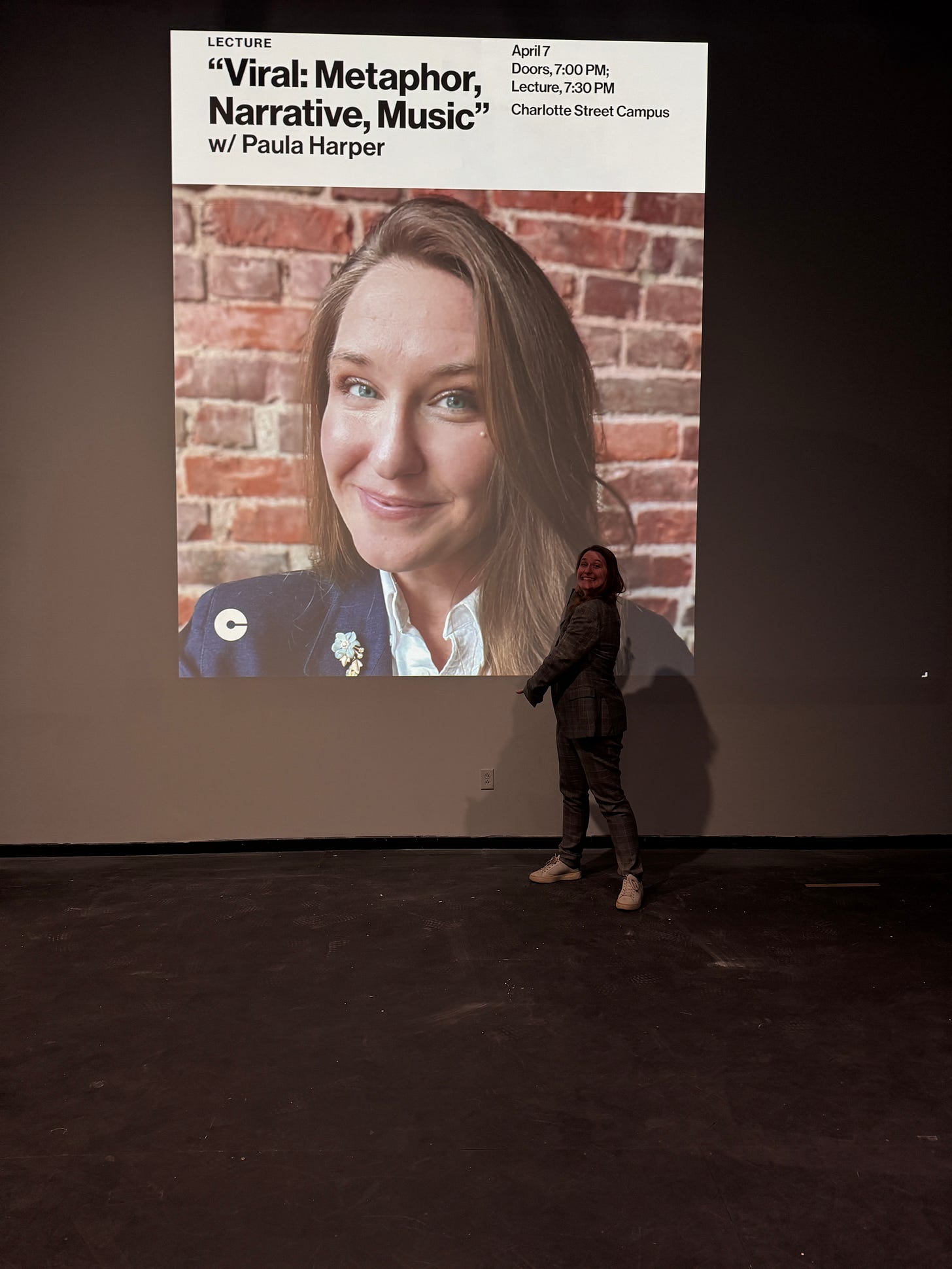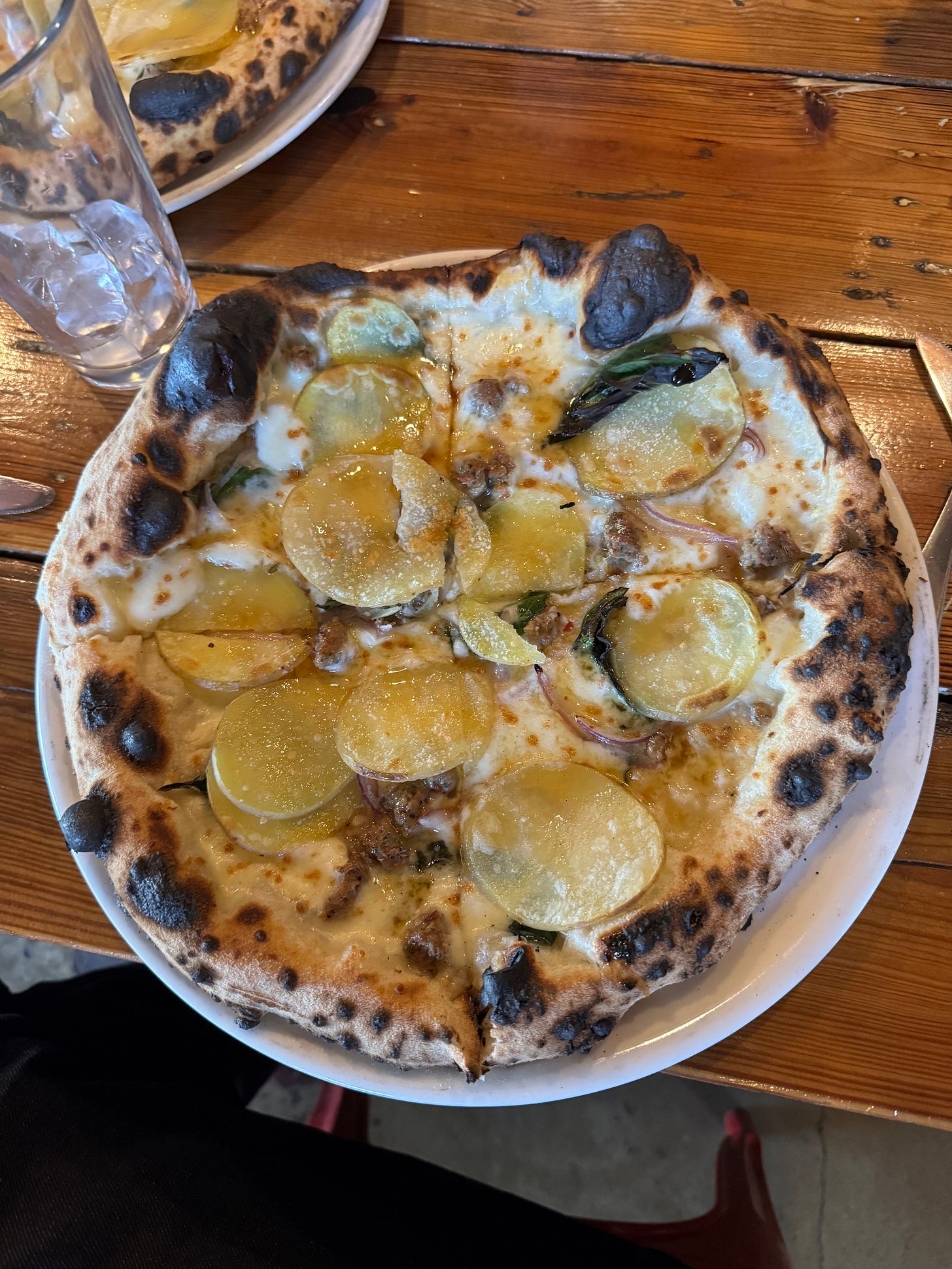Hi all,
While I’m not exactly sure what’s coming next in this series, I do have at least two plans to hopefully maximize its value in the future:
Once I’ve built up a few more posts, I’m going to compile them in a single popular music studies page. From there, I’ll keep adding until it exists as a hopefully useful resource.
I’ve threatened many of you with a podcast recently, and I’ve decided, for sure, to do it. I even bought a microphone.
It will be a while yet until either of these projects come into their own. In the meantime, I wanted to report two bits of feedback that I’ve received on the series so far, which help fill in gaps that I left opened.
First, friend and colleague Jessica mentioned to me that, contrary to my (accurate) characterization of the States, Popular Music Studies is quite professionalized in European academia. As she pointed out, not only are there PMS in European schools (along with funded initiatives and the like); but the UK has also been historically important for the development of the field, in part owing (I think) to its being at the vanguard of popular culture studies in general. Likewise, Popular Music remains an important, peer-reviewed journal out of the UK, and one of the few dedicated specifically to the subject. I also get the sense that institutionalization means that—like the institutionalized music studies fields here in the States—PMS in Europe implies a certain series of methodological tendencies, prioritizing some views over others depending on the country and cultural history.1
Second, P2 recommended an additional few sources to be added to the reading list from last week.3 These will be added post-facto—yall should likewise feel free to keep the recommendations coming and I’ll continue adding them as we go.
Musicology Visit
Yesterday, UMKC was privileged to have musicologist Paula Harper on campus for a series of events, which included her teaching my love songs seminar for me and also delivering a public lecture. In my class, we focused on her chapter in the newly released book Taylor Swift: The Star, The Songs, The Fans and had a great discussion about the roles of desire and love in parasocial relationships of the kind represented by Swift’s level of fame and her giant fanbase.
Paula’s chapter, “Hearing #Gaylor: Queer Musical (Conspiracy) Theorizing in the Internet Age,” focuses on the internet conspiracy theory/ongoing sleuthing collective that scours Swift’s archive for clues about her sexual orientation. And while such heightened attention on celebrity might bespeak a bottomless emptiness animating the search for recognition in the fantasy figure of a superstar in ways that also reveal newly demanding senses of entitlement among fans, Paula points out the relative lack of musical analysis in their methods less to poke holes in their theories and more to identify what is too rigid in traditional music theory to be useful in parsing the nuances of how music communicates affectively. Closely reading songs like “Dress” and “Delicate,” Paula raises questions of timbre and affect to provocatively reinforce the idea that queerness circulates in and through (some of) Swift’s music, rather than denouncing fans who nevertheless often find whatever it is that they went looking for in the songs.
After a quick pizza, Paula then delivered a talk on her book project Viral and the Rise of Noisy Platforms at the Charlotte St. Foundation, an incredible artist residency/gallery/performance venue here in KC. I loved getting to hear about this project and in more detail than I had previously, and particularly enjoyed getting to know the emphatically historical/archival approach that Paula is taking to the internet—which can so often seem ahistorical—tracing the emergence of the “narrative” and “metaphor” of internet virality (i.e. to “go viral”) from an early 90s, geocities context through the utter enclosure of the enshittification of the internet, where giant corporations wring capital out of an infinitely fungible set of empty signifiers, or in other words, whatever is viral at a given moment. We had a great lil q&a afterwards, and in general felt very lucky to have been able to bring her to campus. Popular music studies shows up in precious little of our conservatory courses and requirements; but slowly and surely, I hope events like this may start to build a culture around PMS in our small corner of the musicological world.
Recs
This last week (or so) saw four (4!!) of the most important indie bands that I write about in my own work releasing new material. Catch up if you’ve been sleeping, and cry hard.
Unfortunately I remain pretty ignorant about the contours of these conversations, though for some reason I feel like s o c i o l o g y is haunting them (?).
My policy is to anonymize conversations that I’ve had with real people unless they tell me outright that they don’t mind being identified.
Jerome Camal, Creolized Aurality: Guadeloupean Gwoka and Postcolonial Politics
Adriana Helbig, Hip Hop Ukraine: Music, Race, and African Migration
Siv B. Lie, Django Generations: Hearing Ethnorace, Citizenship, and Jazz Manouche in France
J. Griffith Rollefson, Flip the Script: European Hip Hop and the Politics of Postcoloniality
Maria Sonevytsky, Wild Music: Sound and Sovereignty in Ukraine
Nicholas Tochka, Audible States: Socialist Politics and Popular Music in Albania






